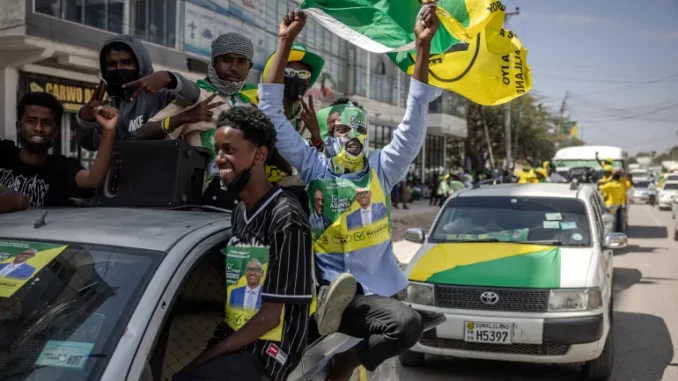
Somaliland approaches a pivotal presidential election as the self-declared republic seeks to leverage its strategic position for international recognition after three decades of de facto independence. The contest features incumbent President Muse Bihi Abdi, who has governed since 2017, against opposition candidate Abdirahman Cirro in a delayed vote originally scheduled for 2022.
The election takes place as the breakaway region sees promising developments for its diplomatic aspirations, especially with a preliminary agreement with Ethiopia. The January deal would grant Ethiopia coastal access for diplomatic recognition, potentially marking a significant breakthrough for Somaliland’s international standing.
The territory’s strategic location near the Red Sea entrance has attracted increased international attention. Both presidential candidates support the Ethiopian agreement, with government representatives indicating the deal’s completion will proceed regardless of electoral outcomes.
This diplomatic initiative has complicated regional dynamics, straining relations between Somalia’s Mogadishu government and Ethiopia, a key contributor to Somalia’s anti-militant peacekeeping operations. The tension has prompted Somalia to strengthen ties with Ethiopia’s traditional rivals, Egypt, and Eritrea.
Somaliland officials emphasize their democratic credentials through multi-party elections, contrasting their relative stability since 1991 with Somalia’s ongoing civil conflict. The region’s 6 million residents continue to face international restrictions, including limited access to global finance and travel opportunities, due to lack of formal recognition.
